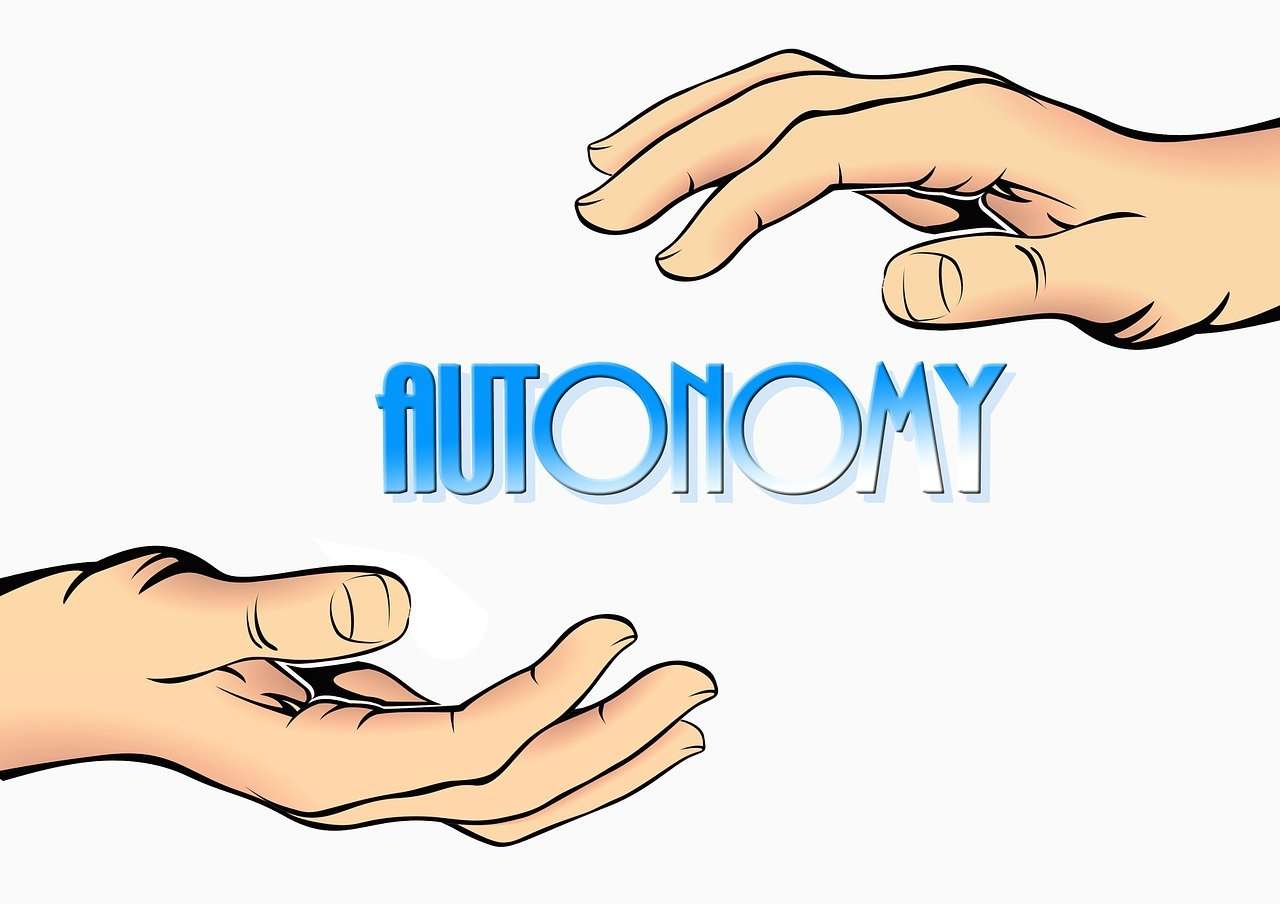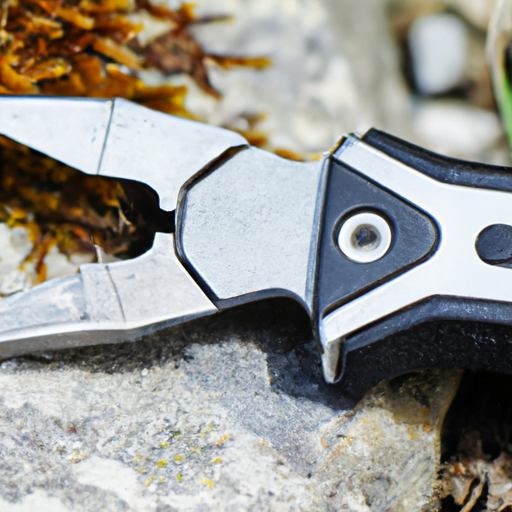Living off the grid can be a rewarding and fulfilling way of life, allowing individuals to disconnect from the hustle and bustle of modern society. However, one concern that off-gridders often face is how to handle repairs or broken equipment without the convenience of professional help readily available. In this article, I will explore the resourceful and creative ways that off-gridders navigate the challenges of maintaining and fixing their equipment, showcasing the self-reliance that defines their unique lifestyle.

Self-repair and Maintenance
As an off-grid homeowner, I have learned that regular inspections and preventive maintenance are key to ensuring the smooth operation of my off-grid system. That’s why I make it a point to conduct routine inspections of my equipment and perform basic maintenance tasks on a regular basis.
Regular inspections and preventive maintenance
Regular inspections are essential to identify any potential issues before they escalate into major problems. I schedule regular inspections of my solar panels, wind turbines, batteries, and water systems to ensure they are functioning optimally. During these inspections, I carefully examine the wiring and connections, check for any signs of wear or damage, and clean the components if necessary. By catching and addressing any issues early on, I can prevent costly breakdowns and ensure the longevity of my off-grid system.
Troubleshooting and basic repairs
Inevitably, there are times when something goes wrong with my off-grid system. That’s when troubleshooting skills become invaluable. I’ll start by identifying the problem, whether it’s a power-related issue, a water system failure, or a heating and cooling problem. Then, armed with my trusty multimeter and other basic repair tools, I’ll dive into diagnosing the root cause.
Troubleshooting often involves checking connections, testing components, and consulting DIY repair guides or online resources. Through these efforts, I am usually able to identify the faulty part or area and proceed with making the necessary repairs.
DIY repair guides and resources
Fortunately, there’s no shortage of DIY repair guides and online resources available to off-gridders like me. These guides provide step-by-step instructions, photographs, and even video tutorials to help me navigate through various repair and maintenance tasks. Whether I need to fix a leak in my water system or troubleshoot a malfunctioning appliance, these resources have proven to be invaluable.
I have also found online forums and communities dedicated to off-grid living to be a great source of knowledge and support. Whenever I encounter a repair or maintenance challenge that I can’t resolve on my own, I turn to these communities for advice and guidance. The shared experiences and expertise of fellow off-gridders have often helped me find creative solutions to my repair problems.
Community Support
Living off-grid doesn’t mean living in isolation. In fact, one of the great advantages of being part of the off-grid community is the strong network of mutual aid and support.
Mutual aid networks
Many off-grid communities have established mutual aid networks where members can rely on each other for support, including repairs and maintenance. This network enables off-gridders to lend a helping hand or exchange expertise when someone is in need. Whether it’s a neighbor with technical know-how or a group of off-gridders coming together for a repair day, these mutual aid networks foster a sense of camaraderie and ensure that no one is left to face repair challenges alone.
Local repair workshops
In addition to mutual aid networks, there are often local repair workshops that cater specifically to the off-grid community. These workshops provide a space for off-gridders to bring their broken equipment and receive expert assistance in repairing them. Often staffed by experienced technicians, these workshops offer a valuable resource for those who may not have the skills or time to tackle repairs on their own.
Bartering and sharing resources
Another form of community support among off-gridders is the practice of bartering and sharing resources. In the spirit of self-sufficiency and sustainability, off-gridders often engage in resource-sharing initiatives. For example, if someone has spare solar panels or batteries, they might share them with others in need in exchange for a different resource or simply as an act of goodwill. This helps to ensure that everyone in the community has access to the necessary equipment for their off-grid lifestyle and reduces the need for expensive purchases or repairs.

Professional Help
While self-repair and community support are vital components of off-grid living, there are times when professional help is necessary.
Locating specialized technicians
Some off-grid systems, such as complex wind turbine setups or intricate water treatment systems, may require the expertise of specialized technicians. Locating these professionals can sometimes be a challenge in remote off-grid areas. However, through online directories, local referrals, and word of mouth, it is possible to find technicians who are experienced in off-grid systems and can provide the necessary repairs or maintenance.
Remote assistance and consultation
In situations where it may not be feasible or affordable to bring a technician onsite, remote assistance and consultation can be a valuable resource. Many technicians are now equipped to provide assistance remotely through video calls or phone consultations. By troubleshooting the issue together, the technician can guide me through the necessary steps to resolve the problem, saving time and money.
Scheduling repairs and maintenance
When self-repair is not an option and professional help is needed, scheduling repairs and maintenance becomes crucial. Off-grid homeowners often need to coordinate with technicians to ensure that they can reach their remote locations and have the necessary equipment or parts on hand. Good communication and planning are essential to minimize downtime and disruptions to the off-grid system.
Backup Systems
As an off-grid homeowner, I understand the importance of having backup systems in place to ensure that any unexpected breakdowns or power outages don’t leave me completely stranded.
Redundant equipment and backups
To minimize the impact of equipment failures, I have invested in redundant equipment and backups for essential components of my off-grid system. For example, I have spare solar panels, wind turbines, and batteries readily available so that if one fails, I can quickly replace it and maintain uninterrupted power generation.
Emergency power supply
In the event of a prolonged power outage or equipment failure, having an emergency power supply is essential. This can be in the form of a backup generator, a portable power station, or even a bank of deep-cycle batteries that can power critical appliances and systems until repairs are made or power is restored.
Spare parts and inventory management
Maintaining an inventory of spare parts and components is essential for off-grid homeowners. By keeping a stock of commonly needed items such as fuses, wires, connectors, and seals, I can quickly replace faulty parts without having to wait for them to be shipped from a supplier. Regularly reviewing and restocking my inventory ensures that I am always prepared for any repair or maintenance needs that may arise.

Troubleshooting Common Issues
Off-grid living comes with its fair share of challenges, and troubleshooting common issues is a skill that every off-grid homeowner needs to acquire.
Power-related issues
Power-related issues are among the most common problems off-grid homeowners face. These can range from simple issues such as blown fuses or tripped breakers to more complex problems like wiring faults or battery failures. When faced with a power-related issue, I start by checking the most basic elements, such as the fuses and breakers, before moving on to more involved troubleshooting steps.
Water system failures
Water system failures can disrupt daily life for off-grid homeowners, so it’s important to know how to troubleshoot and address these issues. Whether it’s a leaky pipe, a malfunctioning pump, or a problem with the water treatment system, I start by visually inspecting the system for any obvious issues. From there, I work my way through a troubleshooting checklist, checking connections, valves, and components until I find the source of the problem.
Heating and cooling problems
Maintaining a comfortable indoor temperature can be a challenge when living off-grid. When faced with heating or cooling problems, I first check the basic elements such as the thermostat, filters, and ventilation systems. If the issue persists, I refer to DIY repair guides or seek professional assistance to diagnose and fix any problems with the heating or cooling systems.
Repairing Solar Panels
Solar panels are a critical component of an off-grid system, and knowing how to repair them can save a lot of money and frustration.
Checking wiring and connections
When troubleshooting solar panels, the first step is to inspect the wiring and connections. Loose or corroded connections can disrupt the flow of electricity and reduce the efficiency of the panels. By visually inspecting the panels and checking the integrity of the wiring and connectors, I can often identify and rectify any issues.
Diagnosing panel failures
If a solar panel is not producing the expected amount of power, further diagnosis is needed. This typically involves using a multimeter to measure the voltage and current output of the panel. By comparing these readings to the manufacturer’s specifications, I can determine whether the panel is functioning properly or if there is a fault that needs to be addressed.
Replacing damaged cells or modules
In some cases, a solar panel may have individual cells or modules that are damaged or not functioning correctly. If a faulty cell or module is identified, it can often be replaced without having to replace the entire panel. By carefully removing the damaged component and installing a new one, I can restore the functionality of the panel and ensure optimal power generation.

Fixing Wind Turbines
Wind turbines are another common source of renewable energy for off-grid homeowners. When a wind turbine requires repair or maintenance, here’s how I approach the task:
Inspection of moving parts
The first step in fixing a wind turbine is to conduct a thorough inspection of the moving parts. This includes visually examining the blades, the rotor assembly, and the tower structure for any signs of wear, damage, or misalignment. By identifying any issues early on, I can prevent further damage and ensure the safe operation of the turbine.
Balancing and alignment
If I notice that the wind turbine is not performing optimally, the next step is to check for any imbalances or misalignments. This can be done by using a specialized balance tool to ensure that the blades are properly aligned and that the turbine is not vibrating excessively. Balancing and aligning the turbine can significantly improve its efficiency and extend its lifespan.
Replacing worn-out components
Like any mechanical system, wind turbines have components that can wear out over time. In such cases, I identify the faulty component through visual inspection or by monitoring the turbine’s performance. Whether it’s a worn-out bearing, a damaged gearbox, or a faulty controller, I order the necessary replacement parts and follow the manufacturer’s instructions to safely and correctly replace the worn-out component.
Maintaining Batteries and Energy Storage
Batteries are a vital part of any off-grid system, storing excess energy for use during times of low sunlight or wind. Proper maintenance of batteries ensures their longevity and prevents unexpected failures.
Battery capacity testing
To maintain the health of my batteries, I regularly measure their capacity. This involves performing a load test, where I discharge the batteries at a specific rate and measure the time until they reach a predetermined voltage threshold. By tracking the capacity of my batteries over time, I can identify when they need cleaning, maintenance, or replacement.
Cleaning and corrosion prevention
Clean batteries operate more efficiently and have a longer lifespan. That’s why I regularly clean my battery terminals and connections using a mixture of baking soda and water. This helps remove any corrosive buildup that can hinder the flow of electricity. Additionally, I apply a protective coating to the terminals to minimize the risk of future corrosion.
Replacing faulty cells or modules
Over time, individual cells or modules in a battery bank can fail, affecting the overall performance of the system. When this happens, I use a battery analyzer to identify the faulty component and replace it with a new one. By promptly addressing faulty cells or modules, I can ensure that my battery bank continues to provide reliable energy storage for my off-grid needs.
Water System Repairs
Water is essential for off-grid living, and maintaining a functional water system is crucial. When repairs are needed, here’s how I handle water system issues:
Fixing leaks and pipe damages
Leaking pipes can lead to wasted water and potential damage to the surrounding structures. To fix leaks, I start by identifying the source of the leak and then shut off the water supply to the affected area. Depending on the severity of the leak, I may use sealants, pipe clamps, or replacement fittings to repair the damaged section. Regularly inspecting my water system for leaks helps prevent water wastage and costly repairs.
Pump troubleshooting and repair
If my water pump stops working or is not functioning optimally, I follow a step-by-step troubleshooting process. First, I ensure that the power supply to the pump is uninterrupted and that the pump is receiving the correct voltage. Next, I check for any clogs or obstructions in the pump or the intake pipe. If those steps don’t resolve the issue, I refer to the pump’s user manual or consult with a professional to diagnose and repair any internal faults.
Water treatment system maintenance
Many off-grid homeowners rely on water treatment systems to ensure the quality and safety of their water supply. To maintain my water treatment system, I follow the manufacturer’s recommendations for routine maintenance tasks. This may include cleaning filters, replacing cartridges, and periodically disinfecting the system. By staying on top of water treatment system maintenance, I can ensure that my water remains clean and safe for consumption.
Repairing Off-grid Appliances
Living off-grid often involves using specialized appliances and equipment designed for energy efficiency and self-sufficiency. When these appliances break down, I employ the following strategies to repair them:
Troubleshooting common issues
When an off-grid appliance malfunctions, I always start with basic troubleshooting steps. This involves checking the power supply, inspecting the wiring and connections, and ensuring that all user settings and controls are properly configured. By identifying any simple fixes or user errors, I can save time and potentially avoid unnecessary repairs.
Replacing faulty components
If my troubleshooting efforts indicate that a specific component within the appliance is faulty, I research the availability of replacement parts. Many off-grid appliance manufacturers provide replacement parts and detailed instructions for replacing them. By following these instructions, I can effectively replace the faulty component and restore the functionality of the appliance.
Upcycling and repurposing
In some cases, repairing off-grid appliances may not be feasible or cost-effective. When faced with this situation, I consider the possibility of upcycling or repurposing the broken appliance. For example, if a refrigerator is beyond repair, I might convert it into a cold storage unit or repurpose it for another use entirely. By thinking creatively and finding alternative uses for broken equipment, I can minimize waste and make the most of the resources available to me.
Living off-grid requires resourcefulness, problem-solving skills, and a willingness to learn and adapt. By embracing the principles of self-repair, tapping into the support of the off-grid community, seeking professional help when necessary, and implementing backup systems, off-gridders can effectively handle repairs and broken equipment. With proper maintenance and troubleshooting techniques, we can ensure the longevity and reliability of our off-grid systems, allowing us to continue enjoying the benefits of sustainable and self-sufficient living.




